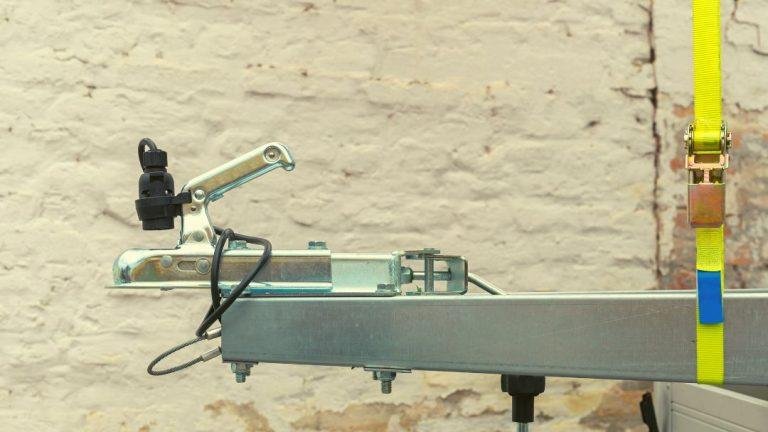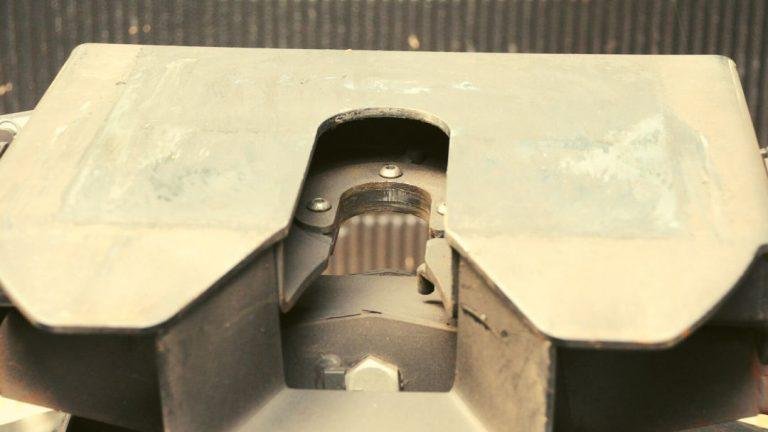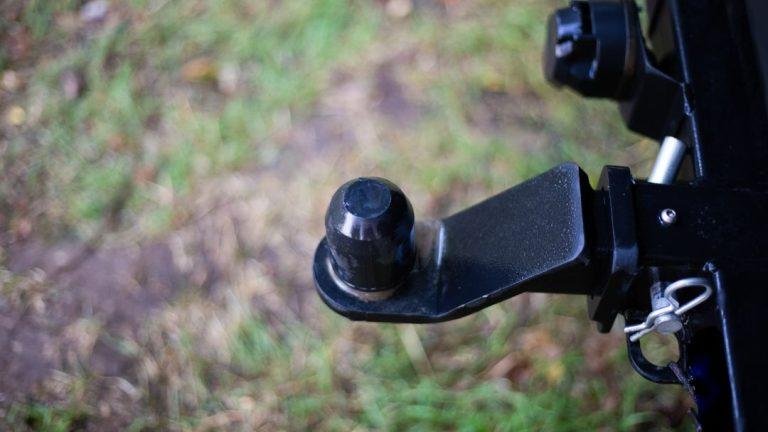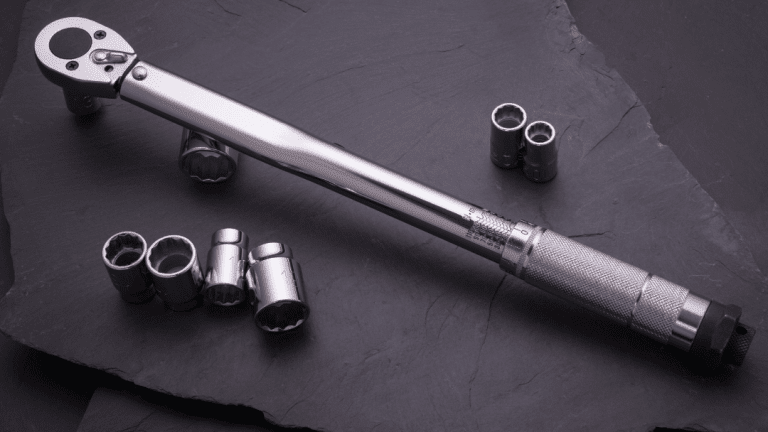Bumper hitches are attached to the bumper of the vehicle, while frame hitches are mounted directly to the frame. Bumper hitches and frame hitches serve as towing attachments for vehicles, but they differ in terms of their attachment points.
Bumper hitches are specifically designed to be attached to the bumper of the vehicle, providing a convenient and accessible towing option. On the other hand, frame hitches are mounted directly to the frame of the vehicle, offering a more secure and stable towing solution.
Both options have their own advantages and considerations, which will be explored further. So, read on to learn more about the differences between bumper hitches and frame hitches, and make an informed decision regarding your towing needs.
Benefits Of Bumper Hitch
The benefits of a bumper hitch are numerous when compared to a frame hitch. A bumper hitch offers greater convenience, versatility, and ease of installation, making it a popular choice for towing needs. The bumper hitch’s ability to handle various loads and its compatibility with different vehicles make it a top choice for many users.
Increased Towing Capacity For Lightweight Trailers
When it comes to towing lightweight trailers, opting for a bumper hitch can provide several notable benefits. Here is why you should consider using a bumper hitch for increased towing capacity:
- The bumper hitch is specifically designed to handle lightweight trailers, allowing you to tow them with ease and confidence.
- With a bumper hitch, you can safely tow trailers weighing up to a certain limit. This makes it ideal for smaller loads, such as utility trailers, bike racks, or small boat trailers.
- The bumper hitch’s design ensures that the weight distribution is evenly distributed, providing stability and control while on the road. This makes it safer to tow lightweight trailers, especially for those who are not experienced in towing heavier loads.
Ease Of Installation And Compatibility With Most Vehicles
One of the significant advantages of a bumper hitch is its easy installation process and compatibility with a wide range of vehicles. Here’s why it appeals to many:
- Installing a bumper hitch is a straightforward process that doesn’t require extensive modifications to your vehicle. Most models can be easily bolted onto the existing frame or bumper, saving you time and effort.
- Bumper hitches are designed to fit a variety of vehicles, including trucks, suvs, and even some sedans. This level of compatibility makes it a versatile option for anyone who needs to tow lightweight trailers.
- The easy installation and broad vehicle compatibility mean that you can quickly switch the hitch between different vehicles if necessary, allowing for greater flexibility and convenience.
Affordability Compared To Frame Hitches
When it comes to affordability, the bumper hitch often takes the lead over frame hitches. Let’s explore why it is a budget-friendly option:
- Bumper hitches are generally more affordable compared to frame hitches, making them an attractive choice for those on a budget.
- The simplicity of the design and installation process reduces the overall cost, allowing you to save money without compromising on functionality.
- While frame hitches may be necessary for towing heavier loads, opting for a bumper hitch can be a cost-effective solution when you primarily need to tow lightweight trailers.
The benefits of a bumper hitch include increased towing capacity for lightweight trailers, ease of installation, compatibility with most vehicles, and affordability compared to frame hitches. Whether you’re a diy enthusiast or someone looking for an economical option, a bumper hitch can prove to be a practical and reliable choice for your towing needs.
Limitations Of Bumper Hitch
The limitations of using a bumper hitch compared to a frame hitch include decreased towing capacity and potential damage to the bumper and vehicle. Frame hitches offer a sturdier and safer towing solution, providing better weight distribution and stability.
If you’re considering towing heavier loads, it’s crucial to be aware of the limitations of bumper hitches. Although they have their benefits, it’s essential to understand the potential drawbacks when it comes to their towing capacity, stability, and weight distribution options.
Lower Towing Capacity For Heavier Loads:
- Bumper hitches are typically designed to handle lighter loads, making them less suitable for towing heavier items.
- The weight capacity of a bumper hitch is often considerably lower than that of a frame hitch. This means that attempting to tow heavier loads with a bumper hitch could put excessive strain on both your vehicle and the hitch itself.
Potential For Increased Sway And Instability:
- Due to their attachment point at the rear of the vehicle, bumper hitches are more prone to sway and instability while in motion compared to frame hitches.
- The rear location of the bumper hitch can cause the trailer to sway side to side, especially when faced with crosswinds or uneven road surfaces. This sway can result in reduced control and potentially lead to accidents.
Limited Options For Weight Distribution Systems:
- Bumper hitches have limited options when it comes to weight distribution systems.
- Weight distribution systems help evenly distribute the trailer’s weight across both the tow vehicle and the trailer axles, ensuring better stability and control. However, many weight distribution systems are not compatible with bumper hitches due to their design and weight limitations.
To summarize, it’s crucial to consider the limitations of bumper hitches when towing heavier loads. Their lower towing capacity, potential for increased sway and instability, and limited options for weight distribution systems make them less suitable for heavy-duty towing. If you frequently tow heavy loads, it may be wise to opt for a frame hitch that can provide higher towing capacities, better stability, and more weight distribution options.
Advantages Of Frame Hitch
Frame hitches offer several advantages over bumper hitches, including greater towing capacity, improved stability and control, and the ability to tow heavier loads. With a frame hitch, you can confidently haul your cargo without worrying about safety and performance limitations.
Superior Towing Capacity For Heavy Loads:
- Frame hitches offer a remarkable advantage when it comes to towing capacity, particularly for heavy loads.
- With their robust and sturdy construction, frame hitches can handle substantial weight, making them the ideal choice for hauling heavier trailers and equipment.
- Frame hitches are designed to be incredibly durable, ensuring they can withstand the strain of towing heavy loads day in and day out.
Enhanced Stability And Reduced Sway:
- One of the significant advantages of using a frame hitch is the enhanced stability it provides during towing.
- The frame hitch is directly mounted to the frame of the vehicle, resulting in a solid connection that minimizes swaying and shifting.
- This increased stability not only ensures a smoother and safer towing experience but also helps prevent accidents or mishaps caused by trailer sway.
Compatibility With A Wide Range Of Weight Distribution Systems:
- Frame hitches offer compatibility with various weight distribution systems, further enhancing their versatility.
- These weight distribution systems help evenly distribute the weight of the trailer and its payload, providing better control and handling.
- With a frame hitch, you have the flexibility to choose the weight distribution system that suits your specific towing needs, whether it’s for towing a larger boat or transporting construction materials.
- This compatibility makes frame hitches ideal for a wide range of applications, ensuring you can tow with confidence regardless of the load.
Frame hitches demonstrate notable advantages such as superior towing capacity for heavy loads, enhanced stability, and reduced sway, as well as compatibility with various weight distribution systems. These factors contribute to a safer, more efficient towing experience, making frame hitches a preferred choice for those seeking reliable and versatile towing capabilities.
Drawbacks Of Frame Hitch
The drawbacks of a frame hitch compared to a bumper hitch include added weight, potential decreased ground clearance, and more complex installation and removal processes. Additionally, a frame hitch may be less versatile in terms of compatibility with different trailers and vehicles.
With the increasing popularity of recreational vehicles (rvs) and towing trailers, it’s important to understand the differences between bumper hitches and frame hitches. In this section, we will focus on the drawbacks of frame hitches in comparison to bumper hitches.
Higher Cost Compared To Bumper Hitches
- Frame hitches tend to be a more expensive option than bumper hitches due to their robust design and materials used.
- The higher cost is partly due to the additional strength and durability that frame hitches offer.
More Complex Installation Process
- Installing a frame hitch can be a more complicated process compared to bumper hitches.
- Frame hitches need to be precisely aligned and attached to the vehicle’s frame, which often requires professional installation or advanced diy skills.
- It may involve removing certain components of the vehicle’s exhaust or other obstacles.
Limited Compatibility With Certain Vehicles
- Unlike bumper hitches, frame hitches may have limited compatibility with specific vehicle models.
- Some vehicles have frame designs that make it challenging to accommodate a frame hitch, or they may have rear attachments that obstruct the installation process.
- It’s crucial to ensure that your vehicle is compatible with a frame hitch before purchasing one.
While frame hitches offer enhanced towing capabilities and durability, they do come with a few drawbacks. They tend to be more expensive, require a more complex installation process, and have limited compatibility with certain vehicles. Understanding the drawbacks of frame hitches will help you make an informed decision when choosing the right towing option for your needs.
Factors To Consider When Choosing Between Bumper And Frame Hitch
Choosing between a bumper hitch and a frame hitch depends on factors like towing capacity, vehicle type, and intended use. Consider weight distribution, durability, and compatibility with towing accessories before making your decision.
When it comes to towing a trailer, choosing the right hitch is crucial. Two popular options are the bumper hitch and the frame hitch. Each has its own advantages and considerations depending on your specific needs and circumstances. Here are some factors to consider when deciding between a bumper hitch and a frame hitch:
Weight And Type Of Trailer Being Towed:
- Trailer weight: Consider the weight of the trailer and whether it falls within the towing capacity of your vehicle.
- Tongue weight: Determine the tongue weight (the downward force on the hitch) of the trailer, as it affects the stability of the towed vehicle.
- Trailer type: Different hitch types are suitable for different trailers, such as travel trailers, utility trailers, or horse trailers. Consider the specific requirements of the trailer you will be towing.
Frequency Of Towing And Towing Distance:
- Regular towing: If you plan to tow frequently, a frame hitch might be a more durable and reliable option.
- Long-distance towing: If you anticipate towing over long distances, a frame hitch can provide increased stability and control, especially at higher speeds.
Budget And Cost Considerations:
- Hitch cost: Evaluate the cost of purchasing and installing the hitch. Frame hitches generally tend to be more expensive than bumper hitches.
- Additional equipment: Take into account any extra equipment that may be needed, such as wiring harnesses or brake controllers, which can add to the overall cost.
Vehicle Compatibility And Installation Requirements:
- Vehicle type: Different hitches work best on specific vehicle types. Be sure to choose a hitch that is compatible with your vehicle’s make and model.
- Installation difficulty: Consider whether you have the necessary skills and tools to install the hitch yourself, or if you will need professional installation services.
- Vehicle modifications: Determine if the hitch installation requires any modifications, such as drilling or trimming, to your vehicle’s bumper or frame.
By weighing these factors carefully, you can make an informed decision when choosing between a bumper hitch and a frame hitch that suits your towing needs. Remember to prioritize safety and ensure that the chosen hitch is compatible with both your vehicle and the trailer you plan to tow.
Practical Examples And Outcomes
A comparison between bumper hitch and frame hitch, their practical examples and outcomes for different towing needs. Understand the advantages and disadvantages of each type to make an informed decision. Choose the right hitch that best suits your specific requirements to ensure safe and efficient towing.
Scenario 1: Lightweight Trailer For Occasional Use – Bumper Hitch May Be Sufficient
When it comes to towing a lightweight trailer for occasional use, a bumper hitch might be all you need. Here are some practical examples and outcomes to consider:
- Bumper hitches are typically attached to the vehicle’s rear bumper, making them suitable for lightweight trailers with smaller loads.
- They are cost-effective and easy to install, requiring minimal modifications to the vehicle.
- Bumper hitches are suitable for towing small recreational boats, jet skis, or utility trailers carrying light cargo.
- They offer convenience and versatility for occasional towing needs, such as family camping trips or transporting small equipment.
Remember, while bumper hitches may be suitable for lightweight trailers, it’s important to consider the specific weight restrictions and towing capacities outlined by the vehicle manufacturer.
Scenario 2: Heavy Load For Frequent Towing – Frame Hitch Is Recommended
If you find yourself frequently hauling heavy loads, a frame hitch is the recommended option. Consider the following examples and outcomes:
- Frame hitches are installed directly onto the vehicle’s frame, providing a stronger and more secure towing connection.
- They offer higher weight capacities compared to bumper hitches, making them suitable for towing larger trailers, rvs, or commercial equipment.
- Frame hitches distribute the load more evenly across the vehicle, reducing the strain on the rear suspension and improving stability during towing.
- They allow for the use of weight distribution hitches and anti-sway devices, enhancing safety and control when towing heavy loads.
Keep in mind that installing a frame hitch may require professional assistance due to the complexity of the installation process. Additionally, ensure that your vehicle’s towing capacity meets the requirements for the specific load you intend to tow.
By considering these practical examples and outcomes, you can make an informed decision on whether a bumper hitch or frame hitch is more suitable for your towing needs. Whether you’re hauling a lightweight trailer occasionally or towing heavy loads frequently, the right hitch can make a significant difference in your towing experience.
Frequently Asked Questions Of Bumper Hitch Vs Frame Hitch
What Is The Difference Between A Bumper Hitch And A Receiver Hitch?
A bumper hitch is attached directly to the vehicle’s bumper, while a receiver hitch is mounted to the frame underneath the vehicle. A bumper hitch is typically used for lighter towing tasks and has a lower weight capacity compared to a receiver hitch.
On the other hand, a receiver hitch is more versatile as it can be used with various hitch accessories such as bike racks and cargo carriers. Receiver hitches also have higher weight capacities and are better suited for heavy-duty towing.
It is important to note that the installation process differs between the two types of hitches, with a receiver hitch typically requiring professional installation for proper alignment and stability. Overall, the choice between a bumper hitch and a receiver hitch depends on your specific towing needs and the weight demands of your vehicle.
How Strong Are Bumper Hitches?
Bumper hitches are known for their strength and durability. They are designed to handle heavy loads and provide secure towing connections. These hitches come in different weight ratings, ranging from class i to class v, allowing for various towing capacities.
Class i hitches can typically handle up to 2,000 pounds, while class v hitches can handle up to 20,000 pounds or more. The strength of a bumper hitch also depends on its construction, usually made of sturdy steel. It is essential to choose the right hitch based on your towing needs and the vehicle’s towing capacity.
What Is A Bumper Hitch Rated For?
A bumper hitch is rated for a specific weight capacity, typically displayed on a sticker or plate. The rating indicates the maximum weight that the hitch can safely tow. It determines the trailer size and weight limit suitable for the vehicle.
This rating is crucial for both safety and legal compliance. To determine the appropriate rating, you should consult the owner’s manual or contact the vehicle manufacturer. Exceeding the hitch’s weight rating can cause damage to the vehicle and compromise road safety.
Always ensure that the weight of the trailer and its contents are within the specified limit to avoid any potential problems while towing.
What Is A Bumper Hitch Receiver?
A bumper hitch receiver is a device that attaches to the rear bumper of a vehicle. It is used to tow trailers or carry equipment. The receiver consists of a metal tube that is mounted to the bumper and has a square or rectangular opening.
A hitch ball or hitch mount can be inserted into the receiver to connect a trailer or other towing accessory. The receiver is designed to handle various weights, depending on its class rating. It provides a secure connection between the vehicle and the towed item, allowing for safe transportation.
Bumper hitch receivers are commonly found on trucks, suvs, and vans, and they are widely used for recreational activities, such as camping, boating, and hauling.
Conclusion
To sum up, the choice between a bumper hitch and a frame hitch ultimately depends on your specific towing needs. If you are looking for a hitch that can provide versatility and is easy to install, a bumper hitch may be the suitable option for you.
On the other hand, if you require a more powerful and heavy-duty towing capability, a frame hitch is the way to go. It is crucial to consider the weight limits and towing capacity of your vehicle when making this decision.
Additionally, professional installation and regular maintenance are essential for ensuring the safety and longevity of your hitch. By carefully evaluating your requirements and understanding the advantages and limitations of each hitch type, you can make an informed choice that best meets your towing needs.






